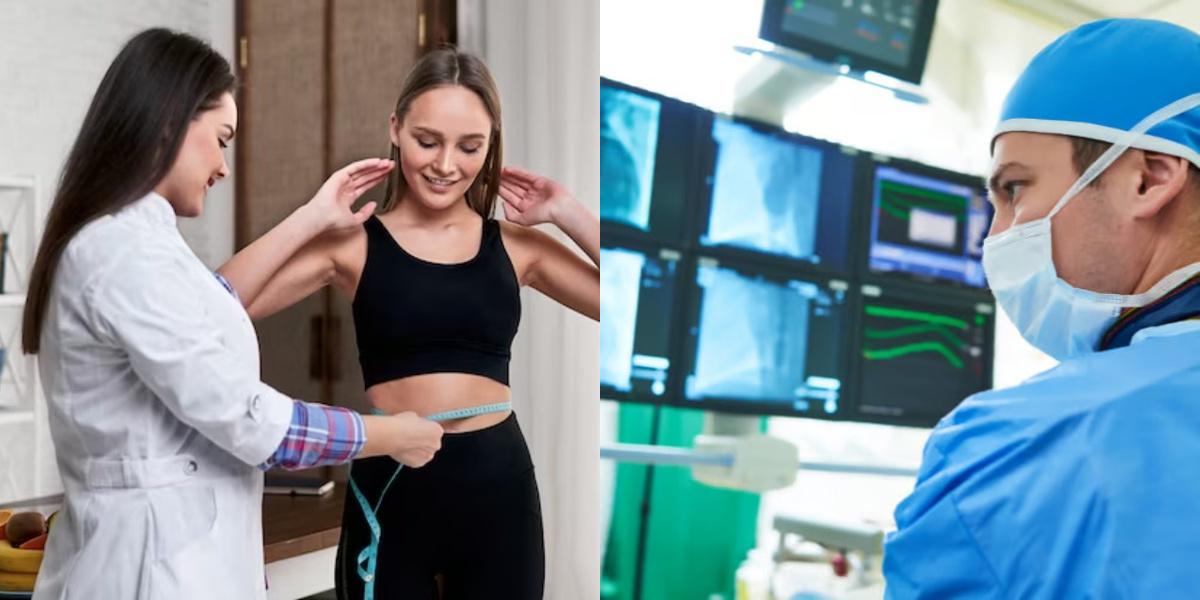Personal Trainer and Nutrition Coach vs Radiology Technician

Key Points:
- Personal Trainers and Nutrition Coaches help clients achieve fitness and health goals; Radiology Technicians operate medical imaging equipment to assist doctors in diagnosis.
- Personal Trainers and Nutrition Coaches may have variable pay based on client base, while Radiology Technicians typically have a more stable salary.
- Both fields have job opportunities, but Radiology Technicians may have more consistent demand due to the healthcare industry's ongoing needs.
- Personal Trainers and Nutrition Coaches often have online or in-person certification programs, while Radiology Technicians require formal education and licensing.
- Personal Trainer and Nutrition Coach training is generally less expensive and shorter than the extensive education required for Radiology Technicians.
Personal trainers and nutrition coaches play a vital role in helping individuals achieve their fitness and health goals. They work closely with clients to develop personalized exercise and nutrition plans, provide motivation and support, and track progress. On the other hand, radiology technicians are medical professionals who perform diagnostic imaging examinations, such as X-rays, CT scans, and MRIs. They play a crucial role in assisting physicians in diagnosing and treating various medical conditions.
Personal Trainer and Nutrition Coach vs Radiology Technician: Education and Training
The educational and training requirements for personal trainers and nutrition coaches differ from those of radiology technicians. Here's a breakdown of each profession's educational path:
Personal Trainer and Nutrition Coach:
- While a college degree is not always required, many personal trainers and nutrition coaches pursue certification programs offered by reputable organizations.
- These programs typically cover topics such as anatomy, exercise physiology, nutrition science, and program design.
- Some personal trainers and nutrition coaches may also choose to pursue a bachelor's degree in exercise science, kinesiology, or a related field to enhance their knowledge and credentials.
Radiology Technician:
- Radiology technicians must complete an accredited radiologic technology program, which typically takes about two years.
- These programs are offered by community colleges, universities, and vocational schools and cover subjects such as anatomy, patient care, radiation physics, and medical imaging techniques.
- After completing the program, radiology technicians must obtain licensure or certification, depending on the state's requirements.
- Continuing education is also necessary to stay updated with advancements in imaging technology and maintain licensure.
Personal Trainer and Nutrition Coach vs Radiology Technician: Career Outlook and Salary
The career outlook and salary potential for personal trainers nutrition coaches and radiology technicians vary based on several factors, including location and experience. Here's an overview:
Personal Trainer and Nutrition Coach:
- The demand for personal trainers and nutrition coaches is expected to grow as individuals become more health-conscious and seek professional guidance to achieve their fitness goals.
- According to the Bureau of Labor Statistics, the employment of fitness trainers and instructors is projected to grow 15 percent from 2019 to 2029, much faster than the average for all occupations.
- The median annual wage for fitness trainers and instructors was $40,510 in May 2020, with the highest 10 percent earning more than $76,000.
Radiology Technician:
- The demand for radiology technicians is also expected to grow due to the aging population and increased diagnostic imaging needs.
- The Bureau of Labor Statistics projects a 7 percent growth in employment for radiologic technologists and technicians from 2019 to 2029, faster than the average for all occupations.
- The median annual wage for radiologic technologists was $63,710 in May 2020, with the highest 10 percent earning more than $98,880.
Final Thoughts
Choosing a career path as a personal trainer and nutrition coach or a radiology technician requires careful consideration of individual interests, strengths, and goals. While personal trainers and nutrition coaches focus on promoting fitness and healthy lifestyles, radiology technicians play a vital role in diagnosing and treating medical conditions through diagnostic imaging. Both professions offer unique opportunities for individuals passionate about health and wellness. Considering factors such as job description, education and training, and career outlook and salary can help individuals make an informed decision about which career path aligns best with their aspirations.
Dreambound's programs are accessible in various locations. To gather more information about these two vocations, check out:



